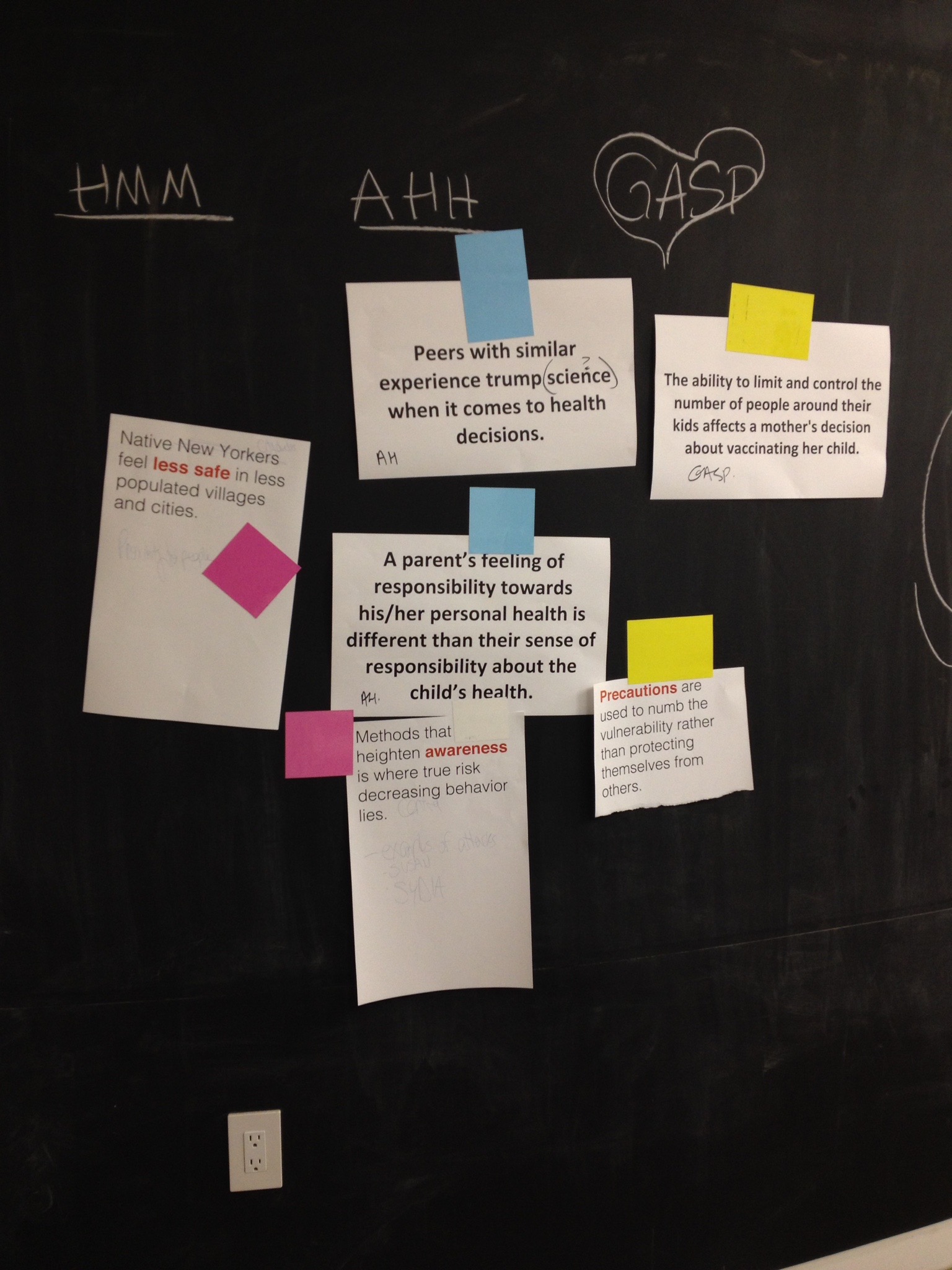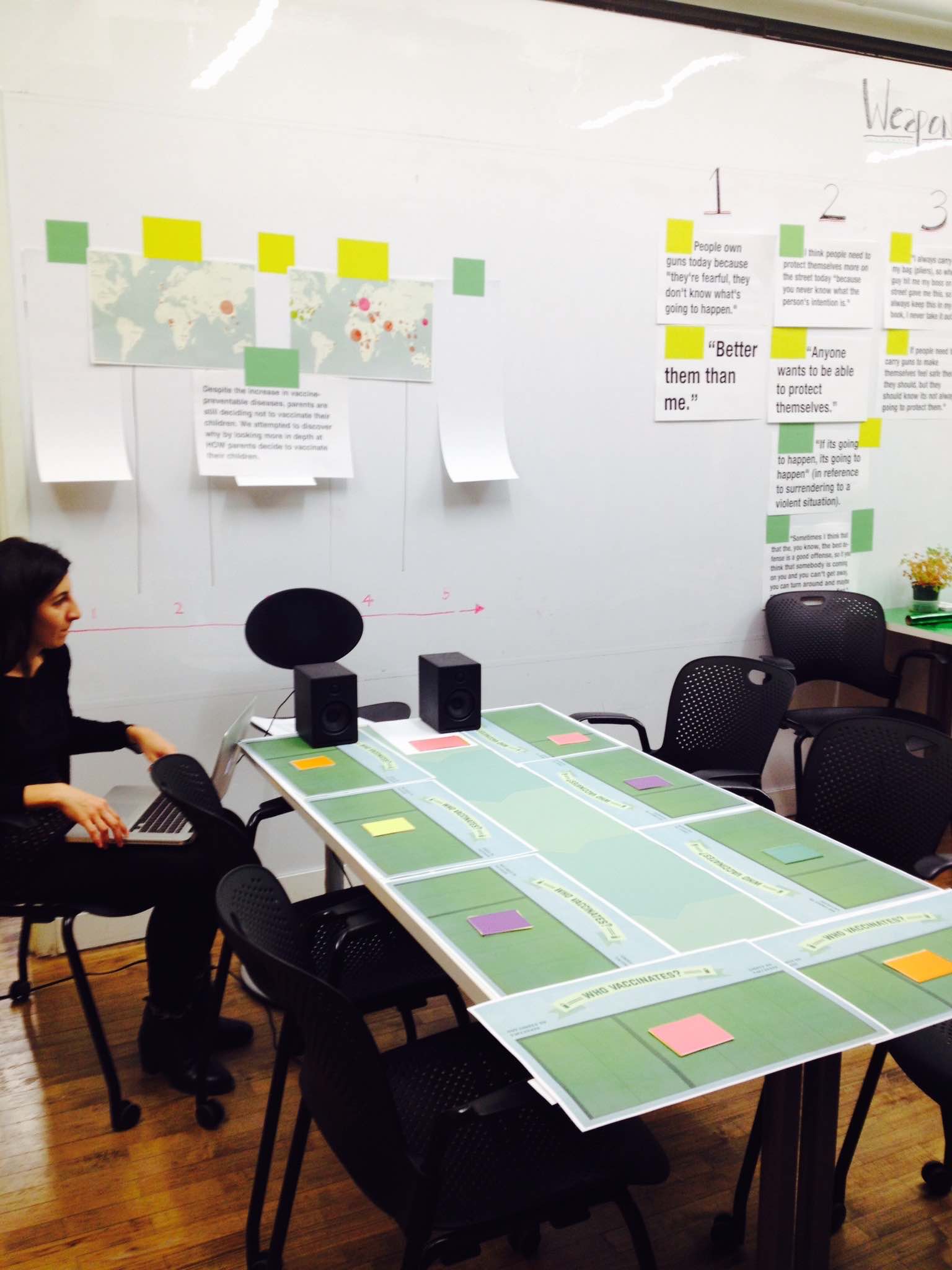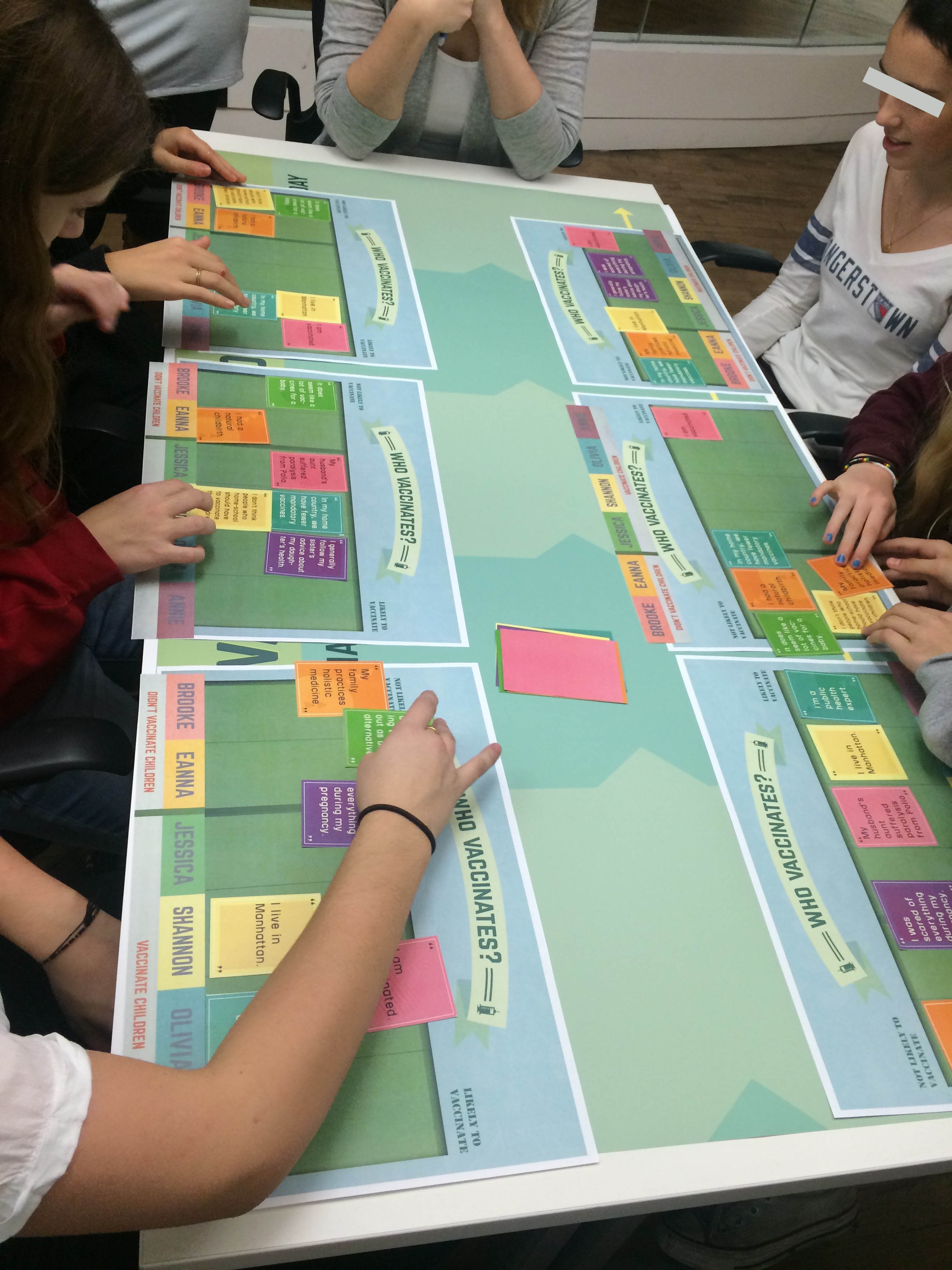Vaccination Decision journey
A learning card game to explore the varied decision-makings in terms of vaccinating kids to open up the dialog
fEB - MAY 2015
Client
x
role
Design Researcher, Game Designer
deliveries
Synthesized insights, Game, and Workshop
The problem
Once irradiated diseases are slowly on the rise both here in the US and in developing countries. In both developed and developing countries, parents are hesitant to vaccinate their children. Our mission is to undercover the roots of the issue, focusing locally (NYC), and facilitate the conversation.
Over the last 5 years, vaccine-preventable outbreaks have been increasing around the globe. Although it's a complex problem, health officials say one key culprit is that more and more people are choosing not to get their kids vaccinated against these diseases. Substandard vaccination rates create an opening for outbreaks, which often start when an unvaccinated person catches the disease while traveling abroad and spreads the illness to friends and family upon returning
Vaccine-Preventable Outbreaks
2008
2013, Source: Council on Foreign Relations
MY ROLE
Design Research, Game Design, Graphic Design
I involved the entire design process from interviewing to brainstorming the interventions, then led the materials design stage to build the game for the workshop facilitation.
Teams
Team lead: Caroline McAndrews
Designer: Grace Hsieh
Designer: Nazli Cangonul
Researcher: Tana Abbar
Research
Goals
In order to identify the roots of why parents are hesitant to vaccinate their children, we want to target parents (and soon-to-be parents) who are in the midst of making the decision to vaccinate or not. Where does their information come from? Who do they trust the most to help them make the decision? And ultimately, how do they decide?
To that end, we'd like to learn:
How to parents decide whether to vaccinate their children?
Where do they get their information?
What are the reasons that stop someone from vaccinating his/her child
Site and participant sample
Potential Sites/Sources for Participants:
Playgrounds on a weekend
Friends, family, professional networks
Vaccine Education Center for referrals to mothers
Participant Sample:
Recent parents (0-2 year olds), or pregnant soon-to-be mothers
Targets: 8 in-context interviews/call-in subjects/network diagrams, 10-15 intercepts/network diagrams
tHE Approach
Intercepts at park
In-context interview (Network Diagram/ Call-ins)
“Insights are 30% data, 30% perspiration, 30% inspiration, 10 % determination, and the rest is luck.”
Interception
lEARNING INSIGHT highlights/
How do parents decide whether or not to vaccinate their children?
/ WHEN
A doctor is irrelevant to the decision making of vaccination
We initially thought that a parent’s relationship with his or her pediatrician would influence decision-making in some way. What we found out is that the decision to vaccinate or not vaccinate a child happens long before a parent has a child.
The decision to not to vaccinate occurs as a result of prior experience with vaccinations that makes a doctor’s opinion irrelevant
Whether deciding to vaccinate or not vaccinate their children, our interviewees spoke of experiences that occurred long before they became pregnant
“I chose not to vaccinate my children. I knew that before they were born...my sister got 20 vaccines [for overseas study] in the course of two months and it literally almost killed her.”
Research reinforces that decision
Once the decision is made, research that contradicts the decision is disregarded
“I base my decisions on facts, not opinions like everyone else”
Non-vaccinators seem to be better informed than vaccinators
None of our interviewees who vaccinated their children could name the different types of vaccines their children were receiving, nor what the order was. However, even though non-vaccinators shared various reasons they resisted using vaccines, all of them are contradicted by the CDC.
“Most vaccinations, you don’t end up being inoculated. They’re actually putting the virus into your body. If you have a compromised immune system, that can affect you for years later. It is essentially putting poison in your body.”
/ WHY
The decision about vaccination is related to parent's point of view about responsibility (community vs. self/child)
Fear of the effects of the vaccine outweigh feelings of safety it instill in vaccinators.
Vaccinators fear non-vanninators in the way that non-vaccinators fear the vaccine.
/ HOW
The ability to limit and control the number of people around their kids affects a mother's decision about vaccinating their child
A. Non-vaccinators speak of rewards that outweigh the risks.
B. (Power of control) Non-vaccinators can always vaccinate "later" if there is a threat (validating)




















